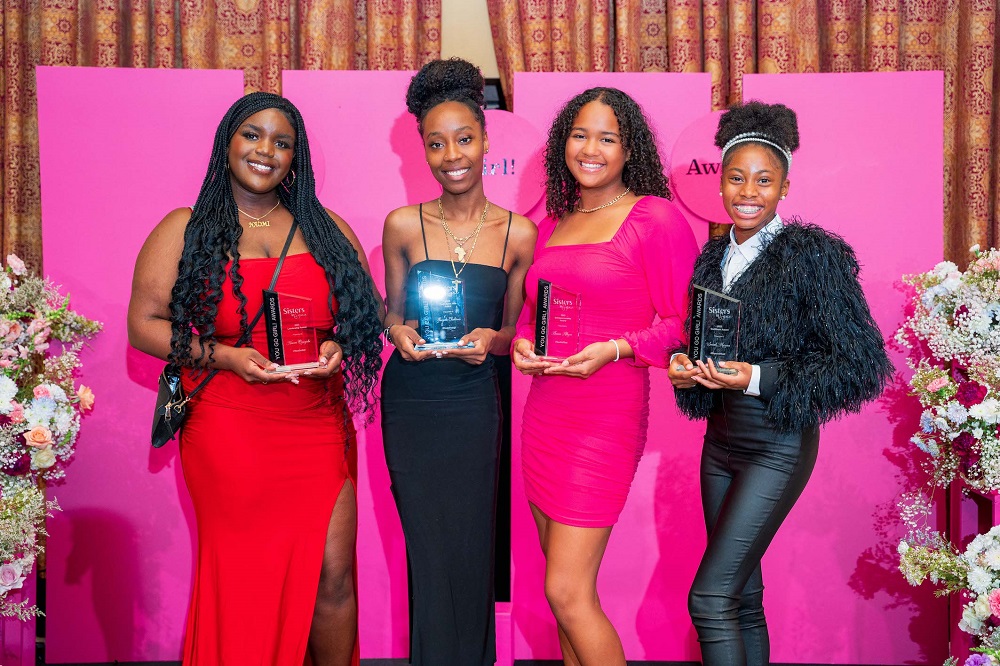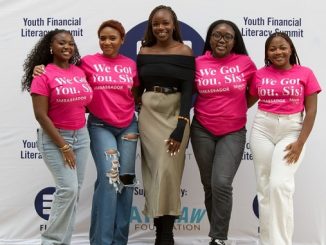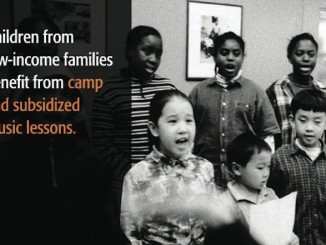Joëlle Kabisoso, a 29-year-old social impact entrepreneur and advocate for Black women and girls, is making waves as the founder and executive director of Sisters in Sync, a Black-led organization based in Hamilton, ON. Through this initiative, Joëlle empowers Black women and girls to overcome barriers, build self-esteem, and access opportunities that help them thrive. Recognized nationally for her work, including being a recipient of the 2024 Governor General’s Awards for advancing gender equality, Joëlle continues to champion the cause for gender equity, support survivors of trauma, and dismantle systems of inequality. Sisters in Sync has become a vital resource for the Black community, offering programs and services that foster connection, healing, and growth.

Describe your charity/non-profit work in a few sentences.
Sisters in Sync is a Black-led organization dedicated to helping Black women and girls to be, become, and belong through programs, services, and advocacy efforts. We promote self-esteem and self-efficacy to empower Black girls and women to access opportunities, resources, and justice. Additionally, we address the systems of social inequalities that create barriers and hinder the availability of accessible services.
What problem does it aim to solve?
Sisters in Sync envisions a world where Black girls and women are seen, heard, and appreciated for their humanity, contributions, and potential, with the hope of moving towards a more compassionate and judgment-free society. Our motto, “We Got You, Sis,” exemplifies our commitment to standing in solidarity with our sisters and reinforcing the support we offer.
Our approach focuses on diverse lived experiences, using self-esteem building as the foundation of our workshops and community initiatives. We aim to address the underrepresentation of Black women and girls in the gender equality space by advocating for better services and support for survivors and victims of various traumas. We host the #MaybeNextTime Campaign to promote practices that move away from victim-blaming.
One of the most challenging problems adolescent Black girls in the GTA face is navigating low self-esteem, often compounded by adultification bias—where they are viewed as more mature and less in need of nurturing than their peers. This bias results in harsher treatment, fewer opportunities for care, and greater societal expectations, often forcing them to grow up faster and miss out on formative girlhood experiences. These pressures, combined with damaging stereotypes that label them as “angry” or “aggressive,” further impact their emotional well-being and limit access to critical support systems. Because we work closely with adolescent girls, we strive to mitigate these challenges through our programs and the various opportunities we offer.
When did you start it?
When I was 17 years old, I was the victim of a racially motivated sexual assault by five perpetrators, which was then tweeted about. This experience fueled my advocacy work, starting with the Violence 360 campaign under Ontario’s Black Youth Action Plan in 2018, where I advocated for better services for Black survivors of sexual assault.
What made you want to get involved?
I didn’t initially set out to start a nonprofit; in participating in the campaign, I simply wanted to ensure that no other Black woman had to face such trauma alone. However, that moment of vulnerability transformed into a calling. While I received mixed feedback and encountered a lot of victim-blaming, what struck me most was the overwhelming realization of how many people could relate to my experiences. Many were desperately seeking a platform to share their own stories, just as I had. This further fueled the need to establish Sisters in Sync.
Being in this position has made me acutely aware of the impact I can have. I am motivated to be an intentional changemaker, inspired by the connections I’ve formed and the community I’ve built through Sisters in Sync. My journey has shown me that sharing our stories can ignite change and foster a sense of solidarity among those who have faced similar struggles. Now, six years later, I have impacted the lives of 650 Black women and girls and counting.
What was the situation like when you started?
When I started Sisters in Sync, the situation was initially challenging. I didn’t quite know what to do or how to do it, and I didn’t have a team to support me. It was just myself until I recruited my best friend, who has now been with us for five years in the role of operations, helping everything run smoothly. We faced significant hurdles in building credibility, which made it difficult to access funding and enter spaces that would enable us to effect real change. Despite these obstacles, our passion and commitment to supporting Black women and girls kept us going, and we gradually built the foundation of what Sisters in Sync is today.
How has it changed since?
Since then, we’ve been able to build a very strong community, largely thanks to the funding we received during the pandemic. Many initiatives aimed at supporting Black organizations and communities provided us with the seed investments we needed to develop our capacity, create a strategic plan, and invest in our branding. Over the last four years, we managed to secure approximately $1.2 million in funding, which has truly catapulted us into a position where we are now one of the leading Black-led and Black-serving organizations for adolescent girls and women in Hamilton.
The landscape for charities and nonprofits has also changed, with more flexible funding distributions and increased opportunities for newer organizations to secure support. This shift has allowed us to expand our impact and reach more young women in our community, solidifying our role as a vital resource for Black girls and women in the area.
There has also been increased attention on issues of gender-based violence, intimate partner violence, and the various traumas that Black women and girls face—issues that aren’t often at the forefront of these conversations. This heightened awareness has opened up more dialogue and advocacy around these critical topics, allowing us to address the unique challenges our community faces. It has also created more opportunities for collaboration and support, enabling us to amplify our efforts in advocating for better services and resources for Black women and girls. This collective consciousness is essential for fostering a deeper understanding of the experiences and needs of our community.

What more needs to be done?
There is still much more to be done to support Black women and girls effectively. First, we need to prioritize the implementation of comprehensive, culturally relevant services that address the unique experiences of Black women and girls, particularly regarding mental health and trauma recovery.
Additionally, we must continue to advocate for systemic changes that dismantle barriers to access, such as funding inequities and discriminatory practices in service delivery. Increasing representation in leadership roles within organizations that serve marginalized communities is crucial to ensure that decisions are informed by those who truly understand the needs of the community.
Furthermore, we need to foster ongoing dialogue about issues like gender-based violence and intimate partner violence, ensuring these topics are included in broader discussions about equity and justice. Community engagement is essential; we must empower Black women and girls to share their stories and be active participants in shaping the solutions that affect their lives.
Finally, ongoing support and investment in grassroots organizations are vital to sustain the momentum we’ve built and to create long-lasting change in our communities. Unfortunately, many of the funding efforts that emerged at the peak of the George Floyd movement are no longer available. While we experienced a moment of stability during that time, the withdrawal of these initiatives has placed us back in a space of uncertainty. We now find ourselves competing with larger, more established organizations for limited resources, which makes it increasingly challenging to sustain our programs and services.
How can our readers help?
I believe many in our community may not fully grasp the profound impact of simply showing up. There’s something incredibly powerful about a young Black girl looking around and seeing countless individuals from across the city gathered to celebrate her achievements or to offer support and mentorship. Whether they win an award, excel extraordinarily in school, or are talented athletes, we firmly believe that a child or young person will always remember the moments when people were physically present for them.
For those readers who may not be able to provide that physical “showing up” support, another important yet often overlooked way to contribute is through donations. Some may hesitate to give because they can’t afford large sums, but even a $5 donation can make a significant difference in supporting our girls’ development. These contributions enable us to provide the best resources and programs for our girls, ensuring they have a safe and successful transition from girlhood to womanhood. It allows our programs to remain consistent and offers them the stability they might not have.
If donating isn’t possible, simply talking about Sisters in Sync can have a powerful effect. Word of mouth can change the trajectory of our program. Many of the girls who have experienced life-changing support from Sisters in Sync were referred to us by others who heard about our work.
Where can we follow you?
Website | Instagram | Facebook | YouTube
PAY IT FORWARD: What is an awesome local charity that you love?
The obvious answer is Sisters in Sync! As a charity I started on my own, I have grown it to what it is today with the help of my team, and I can only encourage people to support us and help us reach some of our major goals. We recently secured our first office space, and our goal is to transform it into a safe haven for Black women and girls—a place where they can disconnect from the world and find comfort and support. This space will offer them the resources and community they need to thrive.




